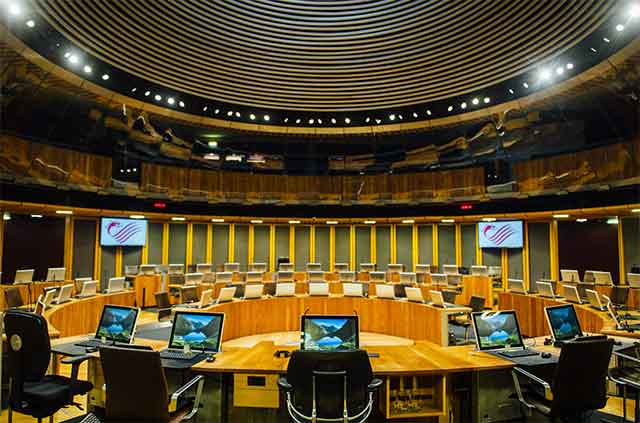Senedd members called for free sunscreen in schools and the removal of VAT amid concerns Wales has the highest rate of skin cancer in the UK.
Sioned Williams warned skin cancer is by far the most common type affecting Welsh people, accounting for almost half of cancers.
The Plaid Cymru politician said skin cancer rates in Wales increased by 8% between 2016 and 2019, with more than 2,000 people each year – or six a day – dying across the UK.
She told the Senedd: “Out of the four UK nations, Wales has the highest rates of skin cancer and we now – all of us – have a one in five chance of developing it during our lives.“
Ms Williams said a report found 30-50% of cancers occur due to exposure to avoidable risks, such as exposure to the sun or using sunbeds, as she called for a focus on prevention.
‘Revealing’
The shadow social justice secretary raised an “extremely revealing and important” study which urged schools in Wales to do more to protect children from exposure to the sun.
She said Julie Peconi, of Swansea University’s school of medicine, found only 39% of schools had a sun safety policy and not all enforced them
Dr Peconi’s study showed schools with a higher number of children entitled to free school meals and lower attendance rates were less likely to have a policy.
Ms Williams said only 29% of schools teach sun safety as a part of the curriculum in every year group and only 5% of schools had sufficient shade for most active outdoor pursuits.
“Education will go a long way towards reducing skin cancer rates,” she stressed.
‘Duty bound’
Siân Gwenllian told the Senedd her husband, Dafydd, died after being diagnosed with melanoma, a type of skin cancer, 20 years ago.
She said: “He was 47 years old and he was the father of four young children, with the youngest just three-years-old.
“At that time, there wasn’t much talk of melanoma … but, now, it’s well known that skin cancer is one of the most common cancers in Wales, and cases are increasing.”
The Plaid Cymru MS for Arfon backed a focus on educating children and adults on the practical steps they can take to mitigate risks.
She said: “Melanoma steals loved ones from us but there are ways of helping, there are ways of mitigating risks and we must draw the attention of the people of Wales to those.
“And I think that the state here in Wales is duty bound to lead on that work.”
‘Crisis’
Ms Williams warned the cost-of-living crisis has pushed up the prices of essentials, including sun protection, with some food banks starting to offer sunscreen.
She said the cost of sunscreen has increased by almost 30% in the past two years, according to the Office for National Statistics, impacting on sales figures.
Ms Williams raised a warning from the British Association of Dermatologists that as prices rise, people may use sunscreen less – putting them at “great risk” of cancer.
The former BBC Wales journalist said sunscreen is classed as a cosmetic product, and subject to the full VAT rate, as she backed a campaign to remove the tax.
She acknowledged powers to vary VAT are reserved to Westminster but she encouraged Welsh ministers to take up the issue with the incoming UK Government.
Ms Williams, who represents South Wales West, urged the Welsh Government to provide free sunscreen to schools, improving access as has happened with menstrual products.
‘Deadly’
Drawing on the example of hand sanitiser use since the pandemic, Ms Williams suggested sunscreen dispensers in public sector workplaces, schools and hospitals.
She warned: “Most skin cancers are preventable but they can be deadly. What are we going to do to ensure that they are prevented effectively? This is a matter of utmost importance.”
Ms Williams said about two teaspoons should be used if covering your head, arms and neck – or two tablespoons if covering your entire body to, for example, wear a swimming costume.
Her colleague Mabon ap Gwynfor said: “My children will be very pleased to hear that … we tend to lather them with too much and they look like zombies by the time we’ve finished.”
During the debate on July 3, Mr ap Gwynfor, Plaid Cymru’s shadow health secretary, raised concerns about rising rates as he called for a comprehensive cancer plan.
‘Key’
Lynne Neagle, for the Welsh Government, said there were 15,000 recorded cases of non-melanoma skin cancer and 1,000 cases of melanoma in 2019.
The education secretary told the chamber the Welsh Government provides advice and guidance for all schools to help them keep pupils safe on extremely hot days.
Acknowledging the “key” role of education, she pointed out that health and wellbeing is one of six “areas of learning and experience” at the heart of Wales’ new curriculum.
But Ms Neagle said: “We also cannot forget that cancer prevention is an issue for the whole of society, not something that we can place entirely on the shoulders of schools.”
The former chair of the Senedd’s children and young people committee pledged to follow up on the Welsh Government’s response to recommendations from a 2012 report.

